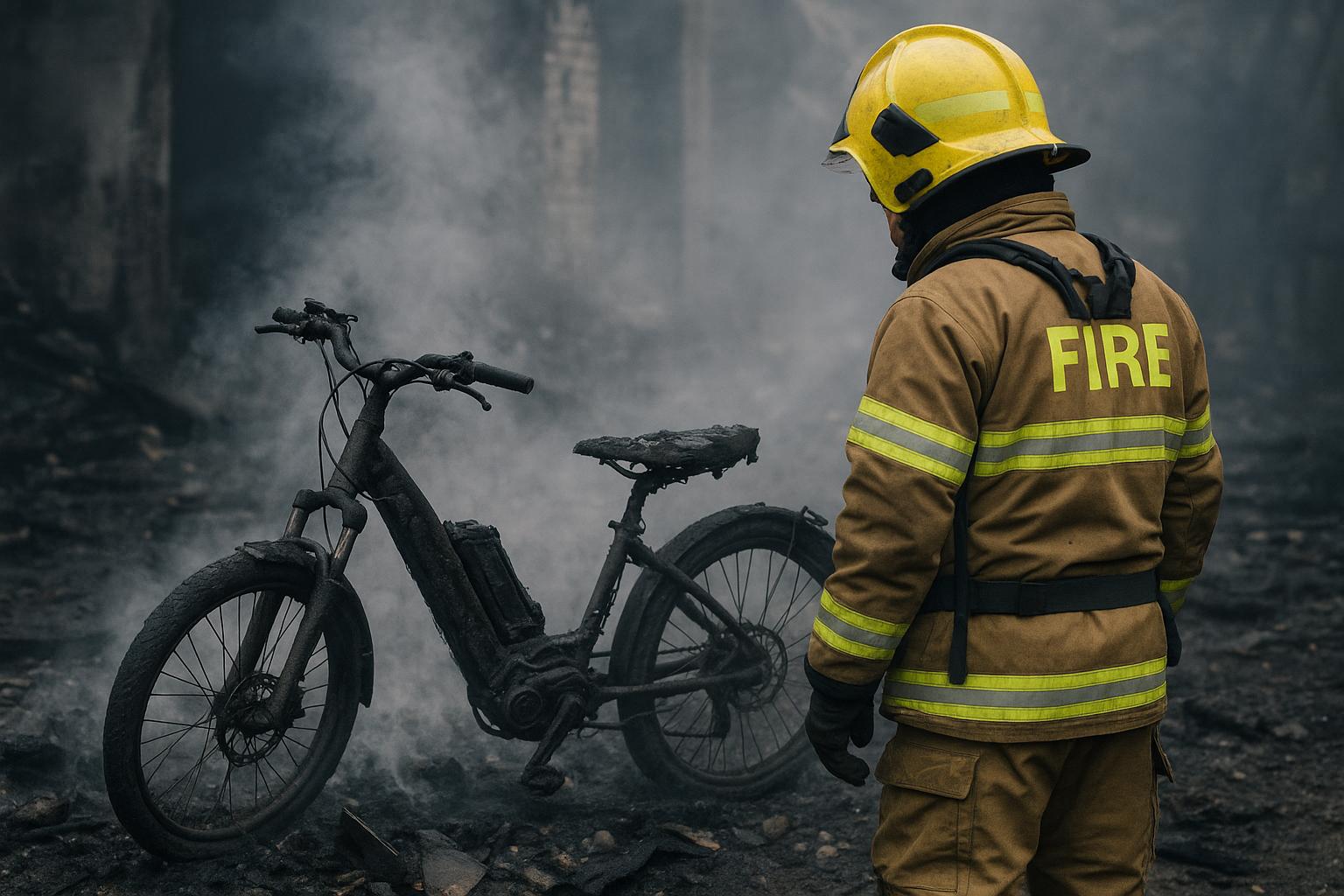London Fire Brigade has issued a stark warning regarding the growing risks of fires linked to e-bike batteries, urging the Government to adopt decisive regulatory measures. The Brigade emphasises the necessity for third-party certification of e-bike batteries to ensure their safety before they reach the UK market, aiming to prevent further incidents and protect public safety.
This call to action aligns with a recent motion put forward by the London Assembly in December 2024, which advocated for mandatory third-party testing of e-bike and e-scooter batteries. The Assembly's motion focused on the escalating fire hazards associated with substandard lithium-ion batteries and called for government-approved safety assessments prior to market entry. Alongside this, the Assembly recommended tighter regulation of online marketplaces, highlighting that many unsafe products are sold through these channels without adequate scrutiny.
The UK government has already published statutory guidelines targeting the lithium-ion batteries used in e-bikes, setting requirements for safety mechanisms designed to prevent thermal runaway—a dangerous chemical reaction that can cause fires or explosions. Businesses producing or distributing these batteries must comply with these guidelines under the General Product Safety Regulations 2005. Enforcement of these standards is overseen by the Office for Product Safety and Standards (OPSS), which demonstrates the government’s commitment to consumer protection and fire prevention.
A case in point underscoring regulatory action was the January 2024 ban on the sale of the UPP e-bike battery by the OPSS. This particular Chinese-manufactured battery was linked to multiple fires in England, prompting withdrawal notices to major online marketplaces and warnings to consumers to stop using the device immediately. This move highlights the risks posed by unsafe products and the government’s readiness to take enforcement action.
Further concerns have been raised by Electrical Safety First, a charity dedicated to promoting safer electrical usage. In July 2023, the organisation called for batteries used in e-bikes and e-scooters to be regulated similarly to fireworks and heavy machinery, requiring mandatory third-party approval before sale in the UK. This recommendation follows a series of fatal fires tied to defective lithium-ion batteries and mirrors successful regulatory frameworks like those in New York City, where third-party certification is obligatory.
More recently, Electrical Safety First issued a warning in February 2025 regarding the dangers of using incompatible chargers with these batteries. Their research showed that over a third of UK adults lacked confidence in selecting the correct charger, increasing the risk of fires. The charity emphasised the importance of stronger regulations on e-bikes, e-scooters, and their batteries, along with adherence to manufacturer guidelines for charging and storage to reduce fire hazards.
Government guidance echoes these concerns, advising consumers to only buy e-bikes and e-scooters from trusted sellers and to look for safety marks such as UKCA or CE certification. It also stresses proper battery care, including avoiding modifications or tampering and charging in safe, accessible locations away from potential escape routes.
Together, these measures and warnings form a comprehensive approach to tackling the fire risks posed by e-bike and e-scooter batteries. The consistent message from safety experts, regulatory bodies, and government officials is clear: robust regulations, third-party testing, consumer vigilance, and informed use are crucial to preventing fires and ensuring public safety in the rapidly growing market for electric personal transport devices.
📌 Reference Map:
- Paragraph 1 – [1], [2]
- Paragraph 2 – [2], [1]
- Paragraph 3 – [4]
- Paragraph 4 – [6]
- Paragraph 5 – [5]
- Paragraph 6 – [7]
- Paragraph 7 – [3]
Source: Noah Wire Services
